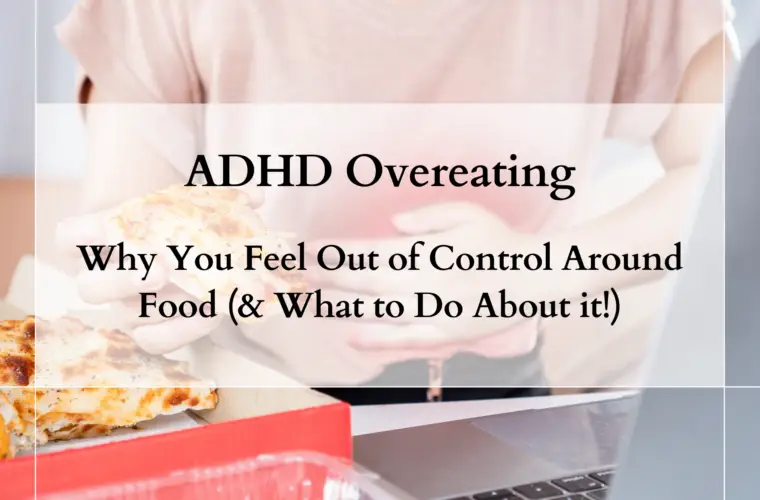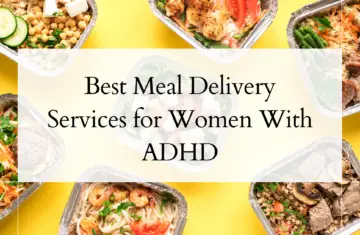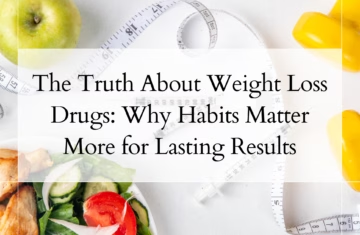ADHD overeating isn’t quite as simple for us as it is for neurotypical people.
For us, our ADHD brains make it 10x harder (doesn’t it everything!). In fact, research is increasingly showing a link between ADHD and overeatingg.
As a Holistic Health Coach for women with ADHD I know you can have success, it just takes a different approach.
In this article on ADHD overeating, I’m breaking down the reasons why women with ADHD struggle more with overeating, how emotions play a major part and most importantly… What changes you can make to successfully stop overeating (and no it doesn’t include diets!)
Emotional Eating
Emotional eating plays a huge and under recognised role for overweight and obese women.
Unfortunately, mainstream diets only focus on either changing what we eat, the amount we eat or when we eat (every single diet out there are all the same and are based on one or more of these principles).
Yet, we still have an obesity crisis.
Why is that?
Because not one of these diets looks at WHY we eat! (I talk more about this in “Why diets don’t work & what to do instead”)
So, we end up starting yet another diet based on good intentions. Only to end up falling off the wagon. Not because you aren’t doing it right, but because you are being taught wrong.
In many cases, overeating is directly linked to how we feel.
Have you ever found yourself wandering into the kitchen for a late night snack, despite eating dinner not that long ago?
Or reaching for that mega Galaxy bar after work even though you’re soon to eat dinner?
When women come to work with me, they are often frustrated with themselves & fed up with being their own worst enemy. They know what they should eat, they just don’t do it.
It’s like their brain has no control over what goes in their mouth. And I get it. I’ve been there too!
Often women are struggling like this because they haven’t made the link between what they eat and what they feel.
For example, let’s take a look at the after work Galaxy bar. I had a client who would always reach for a mega bar of Chocolate after work (sometimes two). Not only that she would then find herself eating way too much for dinner and a big dessert.
She KNEW this wasn’t a good habit to be in and tried to stop by herself, but she just couldn’t seem to do it. Every day she would end up self sabotaging and was making herself frustrated and miserable!
As her health coach it was my job to dig deeper and ask questions to help her discover what was really causing her to overeat.
What we discovered was this…
She had felt overwhelmed and stressed at work all day. The overeating chocolate once she finished was her way of getting some relief from the pressure she had felt all day. Continuing to overeat at dinner was caused by feeling unhappy with her life. She just wanted something to make her happy and take her mind of things.
It was that dopamine boost she was really craving.
Emotions are STRONG and it’s easy for them to override logic. That’s why she knew it would be more sensible to have some yogurt or fruit but she self sabotaged instead.
Her brain needed that dopamine boost in that moment. And that was the part of her that won out.
Here’s the big ADHD problem…
Binge eating chocolate and then overeating at dinner was not helping her health or her waist line. But, being a woman with ADHD the feelings of overwhelm and the low dopamine were hard to avoid.
The neurotypical advice of making a switch to something more healthier (like carrots and hummus) just wasn’t going to cut it for her. There is often a lot more going on under the surface.
Once we started making changes to her work life and worked on the overwhelm and stress she was feeling. That is when the chocolate habit & the overeating at dinner all became far easier to change.
ADHD overeating often comes down to how our brain handles dopamine
Pretty fascinating when you think about it! Dopamine is like the brain’s reward system, making us feel good when we do things we enjoy. But for those of us with ADHD, this system can sometimes go a bit haywire!
When dopamine levels are off, it can mess with our ability to control impulses and seek out that feel-good sensation.
So, when we’re feeling stressed or down, turning to food might seem like the quickest way to get a dopamine boost. It’s like our brain’s way of saying, “Hey, let’s feel good now!”
But, as you can imagine, relying on food for that feel-good fix can lead to overeating habits (& not so healthy ones either).
Understanding this connection between ADHD and dopamine levels can really help you figure out how to manage overeating and work towards healthier eating habits.
Skipping Meals: Good or Bad?
ADHD overeating can also be caused by hyper focus. When in this state, you may find yourself skipping meals or forgetting to eat because you are so focused on what you are doing in the moment.
Now, you’d think this means you would under eat not over eat, right?
Nope!
Here is the problem with this….
When you forget to eat and skip meals your blood sugar levels take a nose dive. This leads you to get irritable, agitated, shaky and make mistakes (sound familiar?).
Most importantly, it leads you to overeat at your next meal.
In the end, you get so hungry and jittery that you end up eating MORE than you would have done at you next meal. On top of that, you run the risk of making poorer food choices and even binge eating.
To lose weight, maintain weight and live a healthy life, it’s crucial you keep your blood sugar levels up by eating regular meals throughout the day.
Note on PMS/PMDD & Overeating in ADHD Women
And here it is the subject that rarely gets mentioned…
ADHD & PMS/PMDD. The reduction in oestrogen levels in women in the luteal phase (typically the last 2 weeks) are linked to changes in insulin resistance. These changes can also trigger cravings, overeating and weight gain. And that’s just in neurotypical women!
Women with ADHD have the added problem that decreasing oestrogen levels can make their ADHD symptoms worse and in some cases make ADHD medication less effective. This can lead to overeating, impulsive eating binge eating. Something that doctors and researchers are finally starting to take seriously.
If that wasn’t bad enough a lot of women who have ADHD also struggle with PMDD. And I am one of them. However, when I went through my titration period for ADHD medication, not ONCE was it ever mentioned that my menstrual cycle could have an effect on how my medication worked or how my ADHD symptoms would change at certain times of the month.
Fortunately, I could use my background in health (and a lot of late night googling!) to find information for myself and start piecing things together.
By keeping track of my symptoms, speaking to the nurse who monitors my medication, regularly exercising and making diet changes, my symptoms became much more manageable.
Even better, I could finally stop beating myself up for things I couldn’t control.
If you struggle with ADHD + PMS/ PMDD then keeping track of your symptoms is the crucial first step to managing them.
How to Stop Overeating With ADHD
For those of us with ADHD it’s hard to find the advice that we need. The majority of information out there is all aimed at neurotypical people. Rarely does it take into account the unique struggles of those of us with ADHD (and especially not women!) Impulsive eating, overeating, binge eating and struggling with executive function tasks makes meal planning, grocery shopping and cooking all that much harder.
Changing your behaviour and stopping overeating can certainly feel overwhelming. Eventually leading you to shut down and feel paralysed.
That’s why working with a holistic health coach is so beneficial for women who struggle with ADHD overeating.
To truly get past your struggles, it’s crucial that you get to the root cause of what’s causing you to feel out of control around food.
As a holistic health coach I work specifically with women with ADHD to stop overeating and develop step by step actions. You can learn more about how health coaching can help you stop ADHD overeating and give you back control around food here.
By taking into account the unique challenges that come with ADHD, and having the right support and system in place, it’s possible to stop overeating for good.

Sarah Parker
I was diagnosed with ADHD weeks before my 30th birthday. It answered many of my questions, one of them being why I couldn’t follow a meal plan to save my life. Not to mention why I found day to day meal planning overwhelming, no matter how many tips I got from frantically typing into the Google search box at 1 am! After overcoming my own struggles, I certified as a Holistic Health Coach & now I help women with ADHD lose weight in a way that suits their unique brain.




